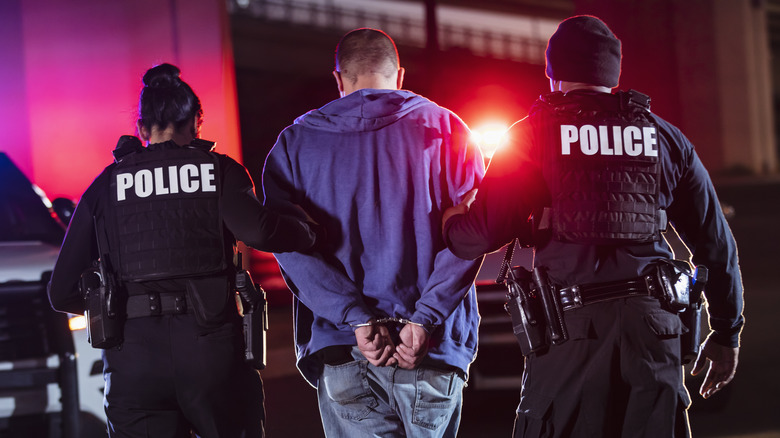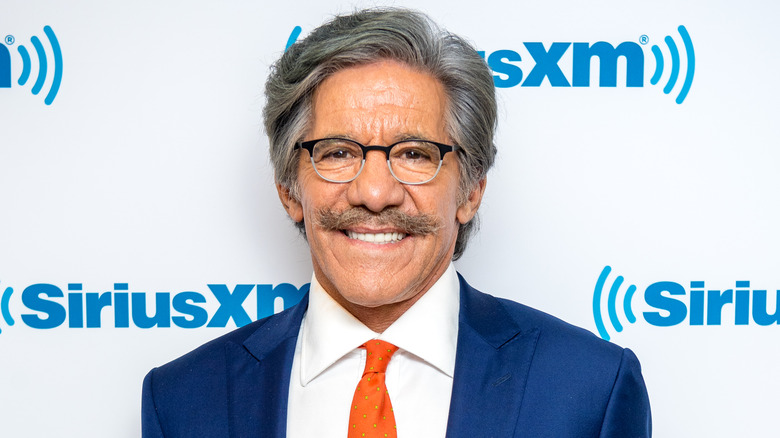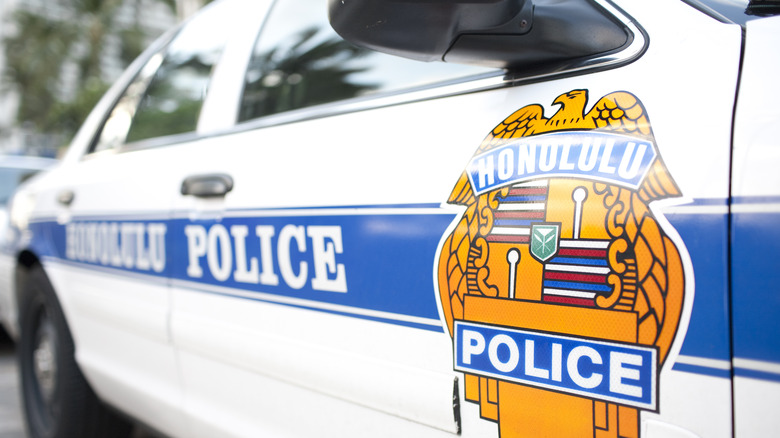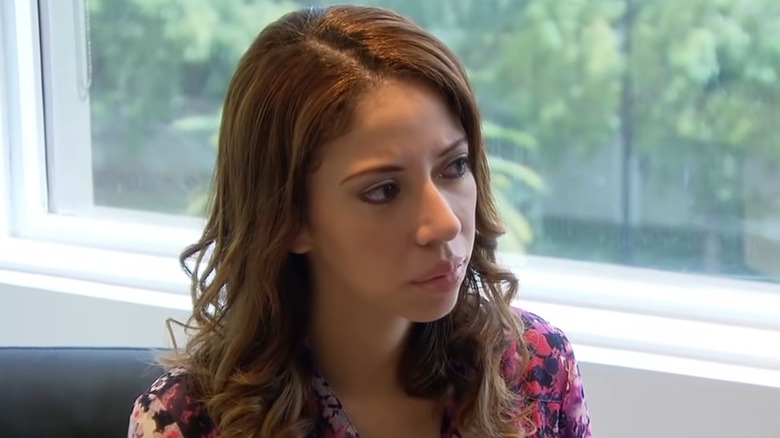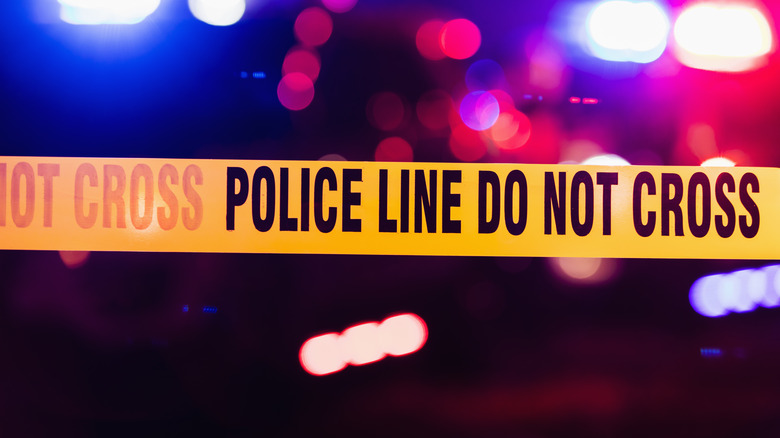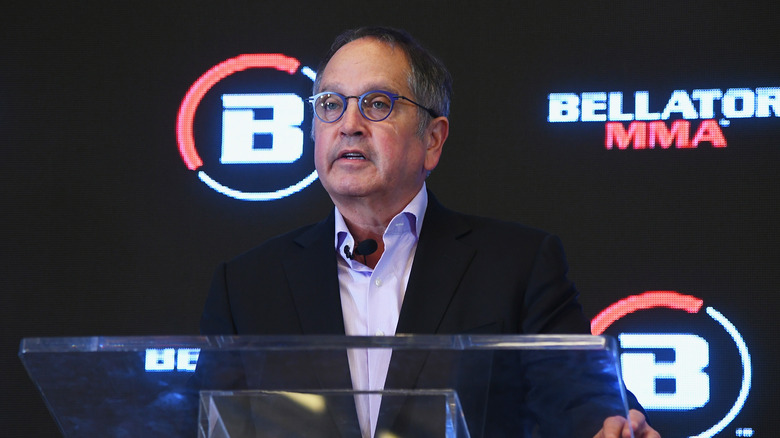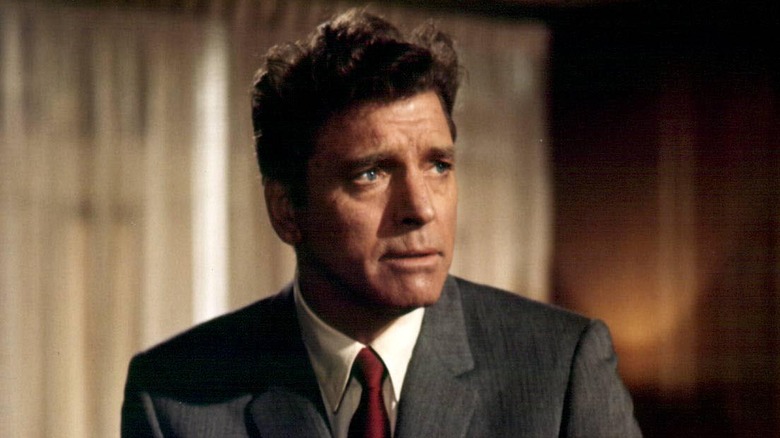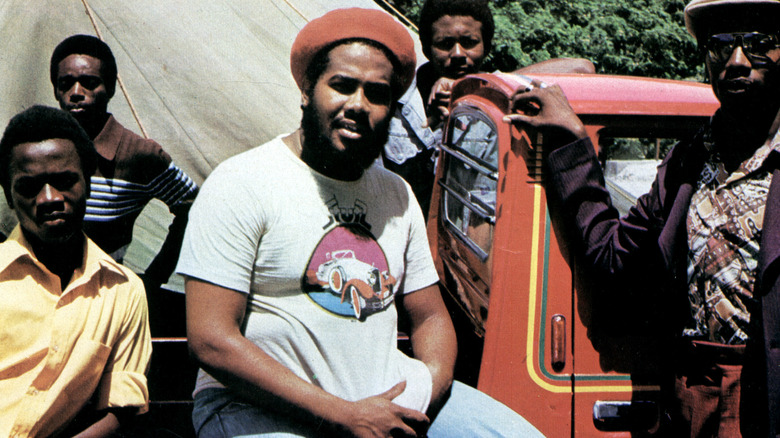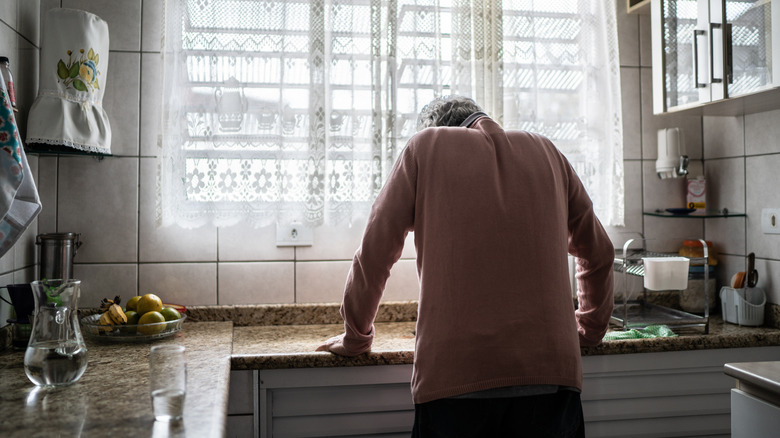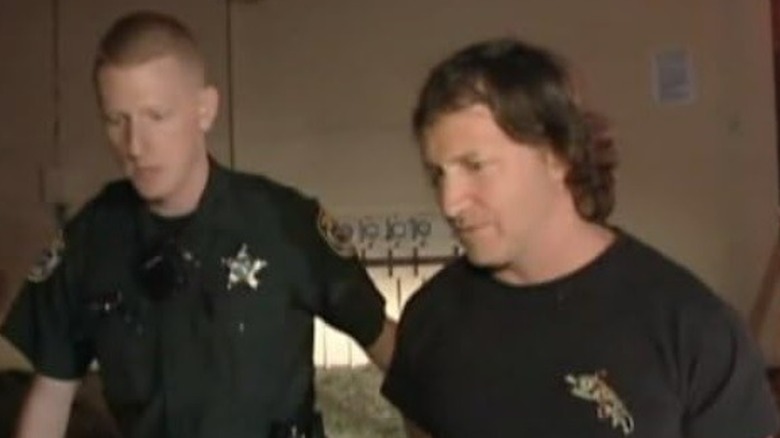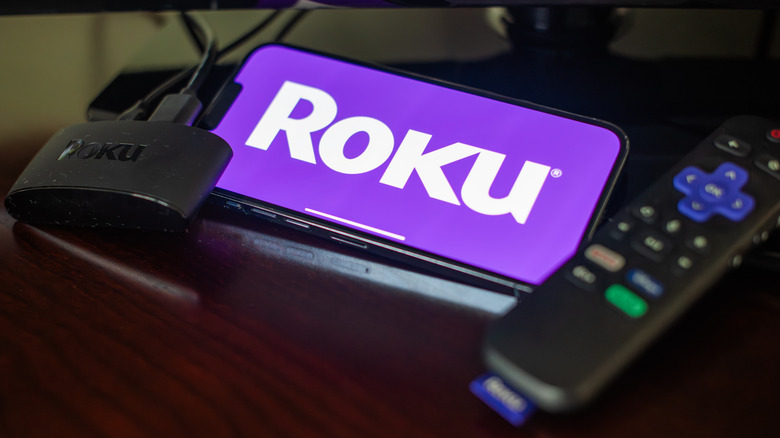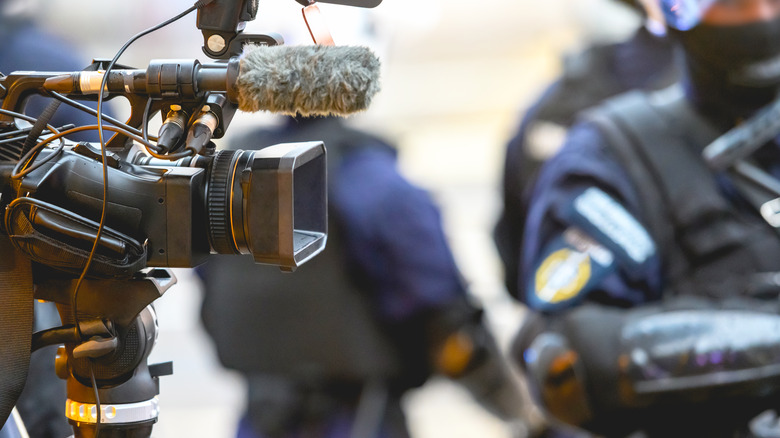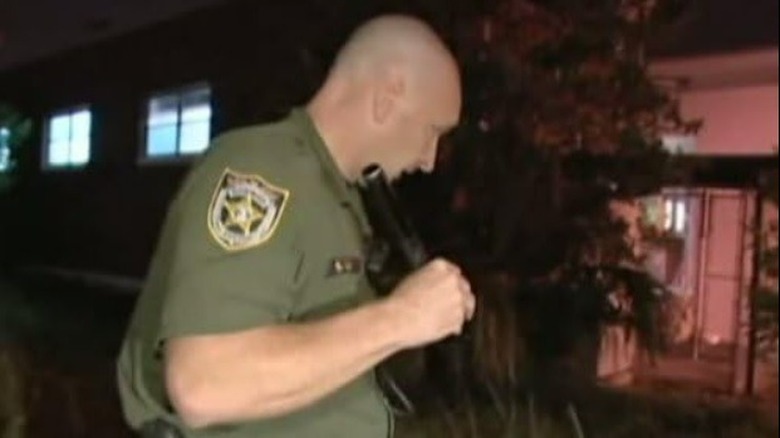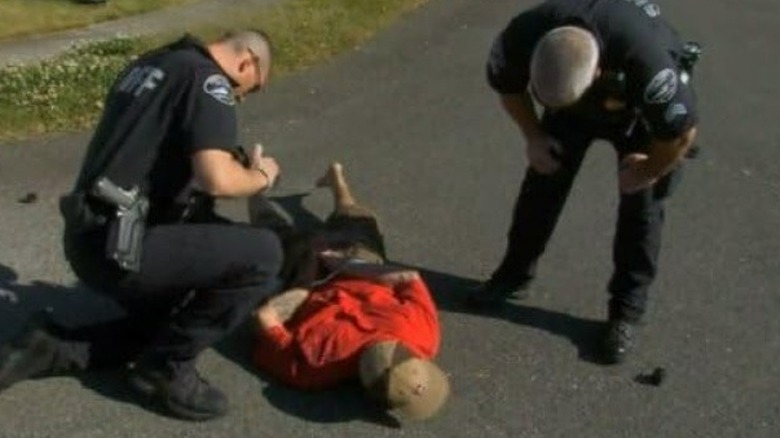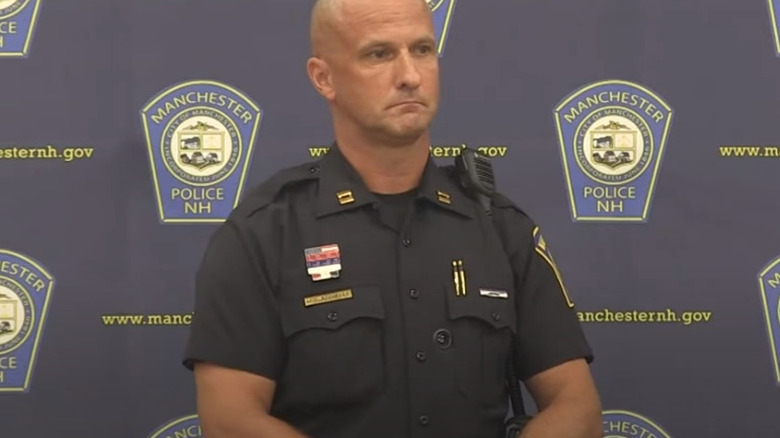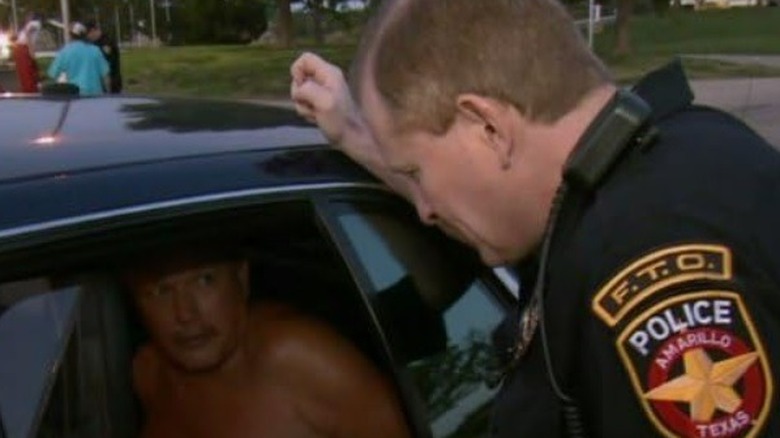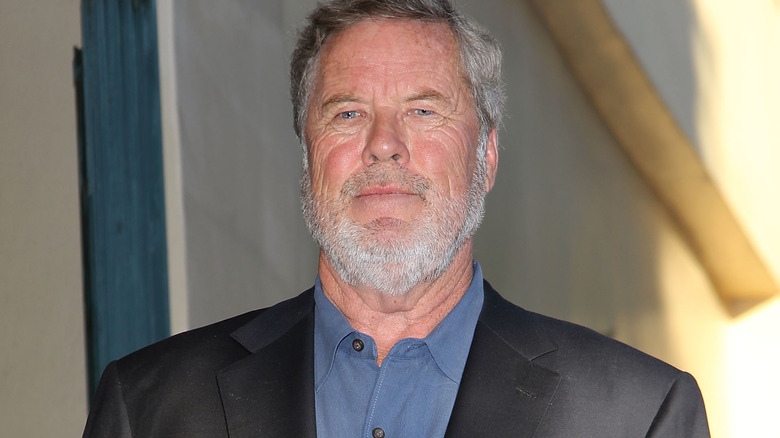The Untold Truth Of COPS
Often considered one of the first reality shows, "Cops" was like nothing else on television when it debuted on Fox back in 1989. Never before had audiences been brought along for the ride as police officers patrolled neighborhoods, chased down potential suspects, and attempted to navigate dangerous situations. Forgoing many of the trappings that would become commonplace for shows of its ilk later on — there is no celebrity host, no narration, no dramatic reenactments — "Cops" took a very bare bones, stripped down approach. And that approach has kept it on the air in various forms ever since.
Needless to say, there's a lot more to the making of "Cops" than simply having a camera operator follow around a city's local officers for a few hours. While suggesting a realistic and unfiltered look at police work, "Cops" isn't a news program and ultimately is still attempting to entertain; therefore, there is at least a little bit of manipulation going on behind the scenes to keep things interesting. The show has also courted a fair amount of controversy over the years, from accusations of it being "copaganda" to questioning the nature of exploiting people at their lowest for ratings. John Langley, the late co-creator of "Cops," was also a fascinating figure in and of himself. We'll investigate all of this and more.
It has a strange origin
"Cops" co-creators John Langley and Malcolm Barbour first began conceptualizing the show while working together on their 1983 documentary, "Cocaine Blues." In researching the award-winning film, Langley went on ride-alongs with law enforcement to a few drug busts — which gave him the idea to build an entire series around having cameras follow police officers investigating and pursuing suspected law-breakers.
Further influence came from journalist Geraldo Rivera's poorly received 1986 TV special "American Vice: The Doping of a Nation," on which Langley also worked. Despite the association with both that special and also with the often-divisive Rivera, Langley was able to spin the core idea of "American Vice" into something more successful. At the same time, Hollywood was going through the 1988 WGA writers' strike, and networks had a need for unscripted programming. All of this came together to form the perfect storm within which "Cops" — and an entirely new genre of television show — was conceived.
Some officers have refused to appear on the show
Because police officers conduct serious and sometimes dangerous work, the crews on "Cops" can't randomly show up at any precinct and start filming. On top of the logistics of planning to have a camera and multiple extra people along for the ride — and for many rides over an extended period of time — there's also the matter of a precinct actually wanting a crew there to begin with.
As such, the film crews need to get permission to feature a precinct and its staff on "Cops", and not all precincts comply. Both Honolulu and Chicago have refused to allow filming there often enough that "Cops" producers have stopped asking. The reason for the refusals is, "police work is not entertainment" and "Cops" "trivializes policing," according to Chicago Police Department Deputy Director of News Affairs Patrick Camden. Maybe Chicago's nickname should be changed from the "Windy City" to the "Right On City."
Producers have been accused of breaking the rules
When a "Cops" camera crew played a hand in Dalia Dippolito's arrest, it would seem they also had an ulterior motive for doing so. As part of what Dippolito later insisted was an "elaborate ruse" involving a fake crime scene to arrest her for allegedly hiring a hitman to murder her husband, someone from "Cops" made sure to get her signature on a release form so they could air her arrest (which became the focus of an entire episode). Dippolito claims the release form was all a trick and that her husband just wanted to get on TV. Her attorney brought this up during her trial, but it didn't affect the jury, who found her guilty. But the verdict of that trial was successfully appealed when it was determined that said jury was improperly selected. Her 2016 retrial then ended in a hung jury. But in 2017, a third trial finally resulted in an upheld conviction that is set to keep Dippolito in prison until 2032.
Cops accidentally killed a crew member
As carefully edited as it might be, it is ultimately real police work happening on "Cops." And that police work comes with legitimate risk for everyone involved, including the camera operators and members of the crew who are along for the ride. They are right there on the front lines of some dangerous situations — and unfortunately, that danger proved fatal for one particular "Cops" crew member.
In August 2014, while filming "Cops" in Omaha, Nebraska, police accidentally shot and killed sound engineer Bryce Dion while he was on location. The incident began when a pellet gun-wielding suspect pointed his weapon at a Wendy's employee, and the police opened fire. Police killed the suspect, along with Dion, who was hit with friendly fire. While police claim the suspect opened fire on them, the suspect's family claim the officers were just excited to be filmed, and the tragic incident resulted from them showing off for the cameras. The Omaha police department denied those accusations and insisted the officers in question followed proper protocol through every step of the incident.
It triumphed over cancellation
After over two decades as one of the network's go-to hits and longest running show, Fox pulled the plug on "Cops." But the series didn't stay absent from the airwaves for long because Spike TV picked up Season 26 – which debuted just four months after the Season 25 finale aired on Fox.
Spike TV produced five seasons of "Cops," until the cable channel was folded into the Paramount Network in 2018. Paramount Network kept the show around for an additional three seasons, bringing "Cops" to its 32nd and final season on traditional television. Paramount had planned to bring "Cops" back for Season 33 in the fall of 2020 but delayed the start of the season in the wake of the George Floyd protests. Eventually, Paramount changed its mind and chose not to bring "Cops" back at all. Shortly after, A&E followed suit and cancelled "Live P.D." -– its own reality show that followed police officers on duty — after also initially only putting the show on a temporary hiatus.
Burt Lancaster did some work for the show
Before the folks at Fox felt "Cops" was ready for prime time, the network decided it needed one more thing — a recognizable narrator and perhaps host. In trying to find the right person for the job, they were clearly inspired by the choice of having Robert Stack fulfill those duties on pioneering true crime series "Unsolved Mysteries." So, they followed a similar route and found another person who was a famed veteran actor, someone with a distinctive voice and commanding presence that would lend "Cops" the gravitas it needed.
Enter Burt Lancaster, legendary Hollywood actor famous for playing tough but sensitive leading men in films like "From Here to Eternity" and "Sweet Smell of Success." Lancaster provided the disclaimer at the start of the pilot episode -– and that's it. That disclaimer was not only shortened but was voiced by someone else after that. It's not entirely clear whether they actually went through the trouble of casting and paying Lancaster just to have him speak a few sentences and nothing more. But it seems plausible there was a lot more in mind for him to do and they were planning to have him be an ongoing announcer before that idea was ultimately scrapped.
An existing song was chosen to be the Cops theme
It's a song that's so perfect for a show like "Cops" that it's easy to assume it was written specifically to be its theme song. And while it's true that most people — Americans in particular — hadn't heard the song "Bad Boys" until it was the theme song for "Cops," the track had already been released on a 1987 album. The band behind the song is reggae group Inner Circle, who formed all the way back in 1968 and had eight albums under their belt before the one that included the original version of "Bad Boys."
Inner Circle and "Bad Boys" getting on the radar of the "Cops" crew was as simple as someone on that crew being a fan of the band and suggesting the song. In addition to being the "Cops" theme song for its entire run thus far, the exposure the song got from the show also propelled Inner Circle to a new level of international success in the 1990s — including a Grammy win in 1993. The song itself also has had life beyond "Cops" — it became the namesake of the blockbuster Will Smith and Martin Lawrence film series. Inner Circle remains an active group, performing live shows as recently as summer 2023 – and yes, "Bad Boys" is still on their setlist.
The show planned to follow officers on and off the field
While "Cops" predated it by three years, the show that more often gets the credit for laying the groundwork for reality television as we know it today is MTV's "The Real World." That show was much more focused on its subjects' interpersonal drama than it was their jobs. Whereas "Cops" was more responsible for inspiring true crime series and workplace-based reality shows, it was from "The Real World" — and its competition-based sister series, "Road Rules" — that a more direct line can be drawn to the rest of the reality TV genre as it has evolved over the past 30 years.
Interestingly, "Cops" also planned to be a trailblazer in "Real World"-esque reality television, as well. The original intention was to follow police officers in both their careers and their personal lives. In the pilot, cameras follow one officer after his shift and into his home, where he is seen having an argument with his wife. If you don't have any recollection of that part of the show, it's because it was immediately abandoned after the first episode following a negative reaction to its inclusion.
Suspects have to give permission to have their faces shown
Generally speaking, it is perfectly legal to film people if they are in a public space. When you dig more deeply into it, there are various caveats that go along with that, but that's the basic rule. As intellectual property law attorney Mark Rosenberg told Mental Floss when discussing "Live P.D." and the need for permission to show people on camera, "When you're outside in a public place, you have no expectation of privacy. You can video people and use them on television."
However, John Langley said that "Cops" does, in fact, procure signed permission from every single suspect that has appeared on the show. It makes sense, as a lot of situations have involved entering residences or private property — and in those cases, permission is needed to film people. So, it was probably just easier in terms of covering all possible legal bases to just go ahead and get everyone to sign. But how exactly do you get someone to agree to be on a show like "Cops"? According to Langley, most were happy to sign the waiver. Especially in the early days of the show, when being on television was much more of a novelty than it is now, people just wanted to be on TV — and many did so because they were fans of "Cops" to begin with.
Cops continues to have new seasons on streaming platforms
We mentioned previously how "Cops" ended its run on traditional television after Season 32 wrapped up in May 2020. But we also said that "Cops" has remained on the air as of this writing. So where have you been able to watch the show since its departure from cable?
After being canceled by Paramount Network, "Cops" was gone for a little longer than it was after its first cancellation by Fox — but not too long. Fifteen months later, the series was once again under the Fox umbrella. This time, it was paid streaming service Fox Nation that picked the show up and started airing new episodes in October 2021. Fox Nation has remained the home for "Cops" ever since, with the streamer bringing it back for two additional seasons and with another said to be on the way. It's also worth noting that much of the pre-Fox Nation run of "Cops" is available on various other streaming services, with some seasons exclusively part of paywalled services while other seasons are available on free, ad-supported streamers like Pluto TV and Roku Channel.
The film crew has stepped in to help on occasion
For the most part, the members of the "Cops" film crew are supposed to stay out of the way. They might occasionally show up on screen in all the commotion, but the overall idea is that you're supposed to forget they are there. And they certainly aren't supposed to get involved with the goings-on in any way, even when they might be tempted to do so.
However, there have been a few instances where the crew felt compelled to interfere. According to an interview with John Langley, one example occurred when someone suffered a medical emergency and needed mouth-to-mouth performed on them. As it happened, a member of the crew was also a trained paramedic, so they stepped in and gave the person the medical assistance they needed. There was also an instance where a suspect was going to try to get an officer's weapon, and a member of the sound crew noticed and prevented the suspect from doing so. But such cases are rare — the vast majority of the time, the "Cops" crew does only their own job and lets the officers do theirs.
Unused footage is no longer archived
Obviously, the "Cops" crew records a lot more footage than is ultimately used on the show. It is estimated that each single episode is culled from about 400 total hours of footage. In the early years, the plan was to keep all of the unused footage indefinitely — primarily just for general archive purposes, but also for potential use in future specials and DVD releases. However, it soon became apparent that doing so wasn't a realistic long-term goal.
With typical seasons of "Cops" having episode counts in the 30s and 40s, that 400 hours shot per episode equals over 10,000 hours of extra footage per season. Once the show's season tally started to pile up, it was obvious that archiving all that footage just wasn't feasible. In addition, the many years the show has been on the air has also meant that the video format has changed multiple times, and it can get complicated trying to archive footage that exists on obsolete storage mediums.
As a rule, officers are not paid for their participation
John Langley often insisted that "Cops" was a documentary series, not a reality show — particularly when the latter genre took some turns he disagreed with, and he wanted to distance himself from it. But on that point, Langley said the officers featured on that show were the subjects of a documentary rather than cast members on a reality show. As such, none of them were ever paid for their participation on "Cops."
In 2011, Langley told Entertainment Weekly, "We don't pay people to be themselves." He went on to explain that as soon as money gets involved, people start to change the way they act — even more so than they might be doing just by nature of having cameras on them. In essence, they become paid performers rather than real officers doing their normal jobs. "If you pay them, then you're affecting their behavior. You're either rewarding them or getting them to do something the way you want them to do it."
Cops comes to some cities for PR damage control
Over the years, there has been a lot of criticism aimed at "Cops." Among those complaints is that the show overly glorifies police, hence the aforementioned accusations of the show being what is known as "copganda." And it's a tough thing for the people behind the show to dispute given the fact that certain cities have invited the show to film its law enforcement specifically after said law enforcement had been involved incidents that painted them in a negative light.
An investigation by Vox in 2019 discovered multiple examples of that very thing happening. Perhaps the most egregious example came when the Los Angeles Police Department — which had previously turned down "Cops" — invited the show to do episodes there following the Rodney King beating and subsequent riots in 1992. The president of the city's police commission even admitted that the move was a deliberate attempt to repair the public's damaged perception of the LAPD. Other examples of this trend included police departments in Omaha, Nebraska, and Salina, California, both cities that invited "Cops" to film the following year after its local police were embroiled in some sort of behavior-based controversy.
Manchester, New Hampshire, police invited the show ... then changed their mind
On the other hand, there have been police departments that initially thought it was a good idea to invite "Cops" to join them on the field — only for the department to change its mind after the fact. The police department of Manchester, New Hampshire, even got so far into the process that the "Cops" crew had already set up shop in town and joined the officers on a night of patrols. But when photos from that initial night of filming hit social media, the residents of Manchester were quick to express their disapproval.
A few people were excited about the prospect of "Cops" filming in their town. But the Facebook post that shared the picture also got hundreds of comments that were staunchly against it. So much so that by Sunday, only two days after the post was shared, Manchester's chief of police had already informed city leaders that his department was calling the whole thing off. As of now, "Cops" has never returned to Manchester, nor has the show ever filmed in New Hampshire at all. It's one of only nine states that has never had a police department featured on "Cops."
There is a podcast dedicated to criticizing the show and its legacy
In addition to media outlets doing individual stories that call various aspects of "Cops" to task, there are some entire projects that have been devoted to that aim. The podcast series Headlong did an entire seven-part miniseries in 2019 called "Running from Cops" that put "Cops" under a microscope with the help of both real-life police officers as well as suspects that have actually been on the show.
For Episode 6, the podcast even managed to procure raw, untouched footage that was shot for "Cops" that gave them — and the audience — a more accurate look at just what goes on in making the show. It's obviously a far cry from the carefully edited, police-approved version that we see on TV. "Cops" portrays itself as being a show that is simply demonstrating people being made to take accountability for their actions — it's only fair that the show itself also be held accountable for the same.
California, Florida, and Texas lead in total number of Cops appearances
We already discussed how New Hampshire is one of the states that has never had its own run on "Cops," and that eight others are also on that list. Those eight are Connecticut, Delaware, Maine, Montana, North Dakota, Utah, Vermont, and Wyoming. That leaves 41 that have had one or more of its local police departments featured on the show. Some have only been on "Cops" once, while others are recurring locations.
California leads the pack with 31 police departments featured so far on "Cops," followed by Florida with 27 and Texas with 16. Given that those are also the three most populous states in the U.S., that breakdown isn't a huge shock. But number four, Washington, is more of a surprise given that it isn't even one of the top 10 states with the most people. Rounding out the top five is Georgia, number eight on the list of most populous states. Georgia has only had eight police departments featured on "Cops," meaning that the remaining 36 states have all had fewer than that.
John Langley said the show never made him cynical about people
John Langley passed away in 2021 and had already ceded the overseeing of "Cops" — as well as Langley Productions as a whole — to his son Morgan. But that means that John worked on the show in at least some capacity for the better part of 28 years. That's a lot of time spent watching people behaving badly to varying degrees. It might make you wonder what that might do to a person's feelings about the inherent goodness of humanity as a whole.
Forbes asked John Langley about that very thing in 2010, and the interviewer was surprised by his answer. Inquiring as to what had surprised him the most about human behavior from working on the show, Langley replied, "That more people are good than bad, and that criminal behavior is aberrant behavior — it isn't the norm. I think I give humanity far more credit, having witnessed it at its worst. Rather than make me a cynic, it's made me realize what a small percentage of the population actually commits crimes."
